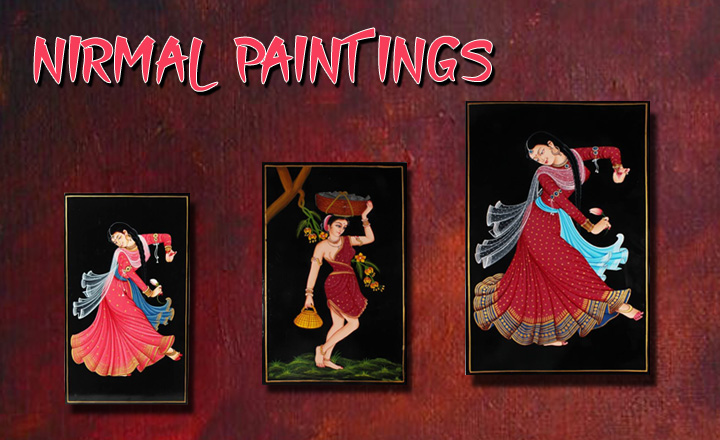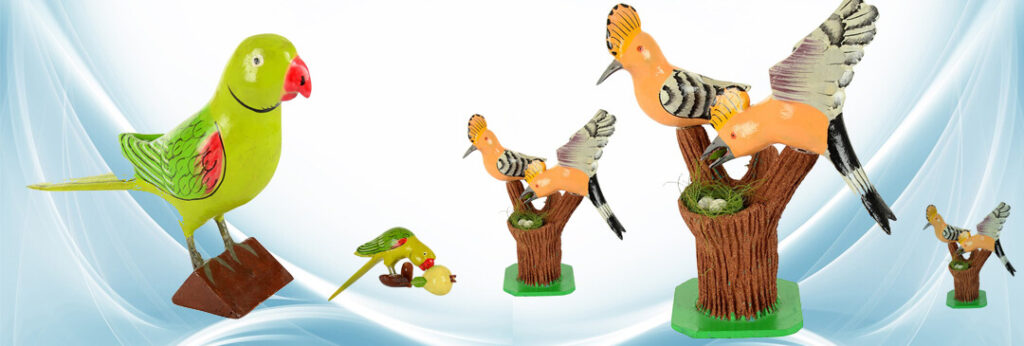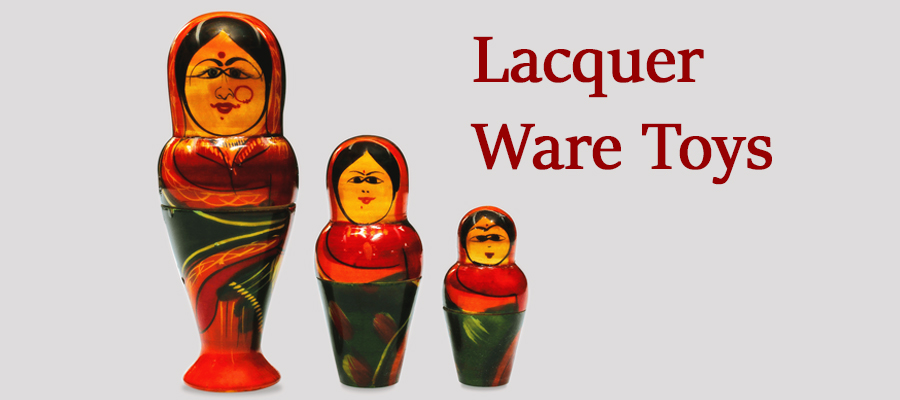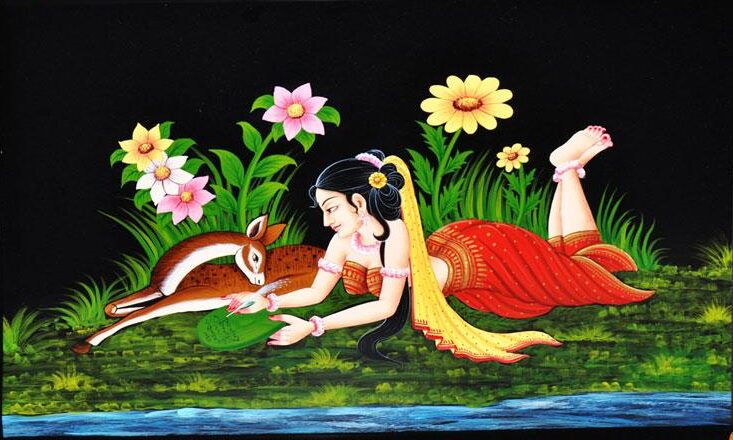
Have you ever heard of Nirmal artworks?
If not, you’re missing out on one of the most captivating and numerous destinations in Telangana. Nirmal is a city located on the banks of the Godavari River in Adilabad district, approximately 220 km from Hyderabad. It has a rich and glorious history and the best Nirmal artworks, dating back to the Kakatiya dynasty and the Nizams of Hyderabad.
It is also domestic to a community of artists, Nakkash, who’ve been practicing a unique and colorful shape of painting and craftsmanship for centuries. These craftsmanship are valuable in international markets as there is a great demand for handicrafts and artisan work.
Nirmal Handicrafts refers to the traditional handicrafts originating from the Nirmal region in Telangana, India. The Nirmal artworks and crafts have a wealthy history that dates back over four centuries. This region, specifically well-known for its painting and woodcraft, has become synonymous with difficult craftsmanship and specific inventive patterns.
Nirmal handicrafts, mainly Nirmal artworks, paintings, and wooden toys, have rather appeared for her aesthetic attraction and the special work involved. Telangana’s Nirmal is a town that offers so much for a vacationer to explore.
Along with being a vacation destination, Nirmal additionally has historical significance as it lies inside the district of Adilabad. Here, agricultural sources, history, lifestyle, and nature’s splendour are at their top. Those lush greens all around are an exquisite sight to witness. Both these places are delved into records, and here’s what you have to realize before touring this metropolis.
Key Elements of Nirmal Artworks and Handicrafts
Nirmal is a city in the Indian country of Telangana, regarded for its wooden toys. It is the district headquarters of Nirmal district. The metropolis has a rich history relationship back to the Kakatiya dynasty and the Nizams of Hyderabad. Nirmal is also famous for its Nirmal plates, which depict miniature artwork and floral designs.
Nirmal Paintings:
Nirmal paintings are renowned for their tricky designs, vibrant shades, and depiction of mythological, religious, and ancient themes.
They typically function as scenes from Indian epics inclusive of the Ramayana, Mahabharata, and Puranas, as well as motifs of flora and fauna.
The artwork frequently uses herbal colors derived from minerals, plants, and earth, making them green.

Nirmal artists use pleasant brushwork to create exact styles and borders. The artwork is usually achieved on a selection of surfaces consisting of paper, timber, and canvas.
The style has a unique look, with an emphasis on symmetry, bright colourations, and complex line paintings.
Wooden Crafts:

The Nirmal vicinity is likewise well-known for its finely crafted timber gadgets, together with furnishings, idols, and toys.
The timber used is generally sourced from the local teak and mango bushes. The artisans carve the timber into elaborate shapes, frequently embellished with Nirmal paintings.
Wooden toys are mainly famous, and they may be acknowledged for his or her detailed carvings and life-like look. These toys often consist of animal collectable figurines, traditional characters, or even small replicas of normal life.
Nirmal Toys:
Nirmal artwork is not best constrained to artwork; however, it also extends to toys, which might be handcrafted timber toys made from Ponniki timber and painted with Nirmal art. These toys are brightly coloured and normally in animal paperwork, which includes elephants, horses, camels, and birds. They have a Geographical Indication (GI) tag, which recognizes their foundation and fine. Nirmal toys are popular among youngsters and collectors alike and are exquisite souvenirs to take again from Nirmal.
Nirmal artworks are practiced by using a community of artists known as Nakkash, who have inherited the talent and subculture from their ancestors. They work in small workshops and showrooms, in which they show and promote their merchandise. They also have behaviour demonstrations and workshops for visitors, who can learn the basics of Nirmal art and strive their hand at it.
However, the Nakkash artists also face some challenges, including trouble in finding Ponniki wood and organic colorings, competition from artificial shades and varnishes, and lack of knowledge and appreciation of a number of the hundreds. To triumph over these challenges, the artists are adapting and innovating their artwork, making utility items and present-day wood furnishings with Nirmal painting, and with the aid of the usage of social media and online platforms to sell and market their artwork.
If you’re an artwork lover, you should no longer leave the opportunity to visit the Nirmal Toys Emporium and the Nirmal artwork gallery, wherein you can witness the beauty and variety of Nirmal art and engage with the Nakkash artists. You can also buy a number of their products, which can be fairly priced and very pleasant. You may be amazed by the creativity and craftsmanship of Nirmal art and the way it displays the lifestyle and identity of Nirmal City and its humans.
Nirmal toys are hand-carved wooden toys made by skilled artisans. They are often made of high-quality timber and have plenty of function and finely painted info.
These toys are designed to be purposeful and ornamental, and they regularly replicate neighbourhood ways of life and conventional practices. Some of the famous toy bureaucracies consist of animals, birds, dolls, and village scenes.
Nirmal Lacquerware:

The Nirmal artisans additionally create lacquerware, which involves applying a layer of colored lacquer over timber. The wood is carved into diverse shapes, and then the lacquer is applied in numerous layers and polished to create a smooth, vivid finish.
This technique is frequently used to create ornamental plates, bowls, and other objects, which might be regularly painted inside the traditional Nirmal fashion.
Cloth and Textile Work:
While wood and painting are the most well-known components of Nirmal handicrafts, there are also some fabric paintings, especially hand-woven fabric and conventional garments.
Handwoven textiles like shawls, sarees, and other clothes might also feature designs inspired by Nirmal artworks.
History and Origin of Nirmal Artworks
Nirmal Art: A Unique and Vibrant Form of Painting and Craftsmanship
One of the main attractions of Nirmal is its art, which is a stylized, colourful painting on a black background on a block of wood. The foundation of Nirmal art can be traced again to the Kakatiya dynasty, whilst the local chieftain Nirmal brought some artists from Rajasthan to enhance his citadel and palace.
The artwork was later patronized by the Nizams of Hyderabad, who favoured its splendour and elegance. Nirmal artwork is inspired by Rajasthani, Mughal, and Ajanta art and makes use of organic colourations extracted from herbs and stones.
The artwork usually depicts mythologies, folklore, floral and other motifs, divine bureaucracy, and human collectible figurines. The artists also give a hint of gold to the artwork, which complements their enchantment and cost.
Nirmal handicrafts date again to the technology of the Qutub Shahis and the Nizams of Hyderabad. The Nirmal artwork, especially, was inspired by the Mughal fashion of art and later blended with nearby traditions, incorporating South Indian cultural factors.
The craft acquired royal patronage, especially for the duration of the reign of the Nizams, who advocated and supported the artists. The skilled artisans of the Nirmal region gained popularity for their targeted woodwork and vibrant artwork.
Cultural Significance
Nirmal handicrafts are a major part of Telangana’s cultural heritage. These crafts preserve a special place in traditional families, with Nirmal artwork and woodwork regularly displayed at some points of festivals and ceremonies.
The location’s traditional crafts additionally play a function in assisting the local financial system, presenting livelihoods for numerous artisans who’ve surpassed their abilities through generations.
In addition to their cultural price, Nirmal handicrafts are also considered creditors’ items. Many humans purchase those gadgets for his or her aesthetic appeal, ancient importance, and cultural richness.
Recognition and Awards
Nirmal handicrafts are a massive part of India’s craft historical past, and they have obtained popularity from the Indian authorities in the form of a Geographical Indication (GI) reputation.
GI popularity for Nirmal art changed into granted to protect and promote the conventional crafts of the area, making sure that the handiest true Nirmal handicrafts would be marketed under that call.
The government and numerous organizations have been operating to hold the craft by helping the artisans through skill improvement programs, exhibitions, and advertising projects.
Challenges Faced by the Nirmal artwork experts:
Conventional production strategies have confronted challenges due to the appearance of mass production and the availability of cheaper, device-made options.
There has also been a loss of modern advertising platforms to showcase the crafts globally. While Nirmal handicrafts are extraordinarily valued, promoting them to a much broader target audience remains a large venture.
Many artisans face economic problems and lack get right of entry to fashionable tools and generations to maintain up with present-day needs.
How to Buy Nirmal Artworks?
Nirmal handicrafts may be found in numerous craft markets, exhibitions, and online systems. Some well-known locations to buy those crafts encompass:
— Nirmal Craft Emporiums in Telangana.
— Dilli Haat and different craft markets are predominant in Indian cities.
— Online marketplaces like Amazon, Craftsvilla, Etsy, and India Craft House.
Nirmal Waterfalls: A Scenic and Serene Destination for Nature Lovers
Nirmal is likewise blessed with scenic beauty, waterfalls, rivers, and forests, which make it a paradise for nature lovers. Nirmal has 4 primary waterfalls, specifically Kuntala, Pochera, Sahastrakund, and Gayatri, that are placed in and across the town.
These waterfalls offer a fresh and relaxing experience for the site visitors, who can enjoy the sound and sight of the water gushing down the rocks and growing pools and streams. The waterfalls are surrounded by lush greenery, which provides for their beauty and quietness.
The waterfalls are also ideal for hiking, boating, fishing, and taking pictures, as they offer an expansion of activities and facilities for site visitors. The waterfalls are also domestic to a few rare and exceptional species of birds and animals, which can be noticed and located by way of the nature fans.
The waterfalls additionally make contributions to the ecology and tourism of the Nirmal metropolis and its environment, as they provide water and livelihood to the local people. The waterfalls are a popular picnic spot and entice hundreds of travellers every 12 months, especially all through the monsoon season, while they may be at their full glory.
If you are searching for a scenic and serene destination, you should go to the Nirmal waterfalls to mesmerize you with their splendour and appeal. You also can go to the nearby points of interest, together with the Kadam dam, which is a massive reservoir on the Kadam river and offers boating and fishing facilities, and the Basar Saraswati temple, which is one of the two temples of Goddess Saraswati in India and attracts thousands of devotees and students.
Nirmal Wildlife Sanctuaries: A Haven for Wildlife Enthusiasts and Adventure Seekers
Nirmal is also a haven for wildlife enthusiasts and adventure seekers, as it has two wildlife sanctuaries, namely Kawal and Pranahita, which are located in the vicinity of the town. These sanctuaries are dense forest reserves that host a variety of flora and fauna and represent the biodiversity and conservation of Nirmal town and its surroundings.
The sanctuaries are home to many endangered species of animals and birds, such as tigers, leopards, sloth bears, wild dogs, deer, antelopes, crocodiles, peacocks, eagles, and vultures. The sanctuaries also have some rare and medicinal plants and trees, which add to their value and importance.
The sanctuaries provide a unique and thrilling opportunity for the visitors to explore and observe the wildlife, as they offer safari and camping facilities. The visitors can take a jeep or a bus ride through the forest and spot the animals and birds in their natural habitat. They can also pitch a tent, spend a night in the forest, and experience the wilderness and adventure.
The sanctuaries also offer education and awareness programs for the visitors, who can learn about the ecology and conservation of the wildlife and the forest. The sanctuaries are a must-visit for wildlife lovers and adventure seekers who can enjoy a memorable and exciting experience in Nirmal.
Conclusion
India’s Adilabad district is home to the city of Nirmal, which is renowned for its rich history and traditional handicrafts, especially its wooden toys and paintings. The city’s rich history extends back to the Nizams of Hyderabad and the Kakatiya kingdom. Known for their elaborate patterns and motifs, the Nakkash community of painters is known for their distinctive and vibrant painting and workmanship.
Nirmal handicrafts are distinguished by the unique labour required and their visual appeal. Historical buildings, agricultural supplies, lifestyle, and the beauty of nature are just a few of the town’s many tourist attractions. Clothing, toys, lacquerware, woodworking, and paintings are all important components of Nirmal artworks.
Handcrafted from premium Ponniki wood and painted with Nirmal artworks, Nirmal toys are wooden. These attractive and functional toys replicate regional customs and ways of life. Another well-liked Nirmal handcraft is lacquerware, made by covering wood with coloured lacquer and polishing it to provide a glossy, vibrant finish.
Designs influenced by Nirmal artwork are also found in cloth and textile production. To see the beauty and diversity of Nirmal art and interact with the Nakkash artisans, visitors can stop by the Nirmal Toys Emporium and the Nirmal Art Gallery.
An important component of Telangana’s cultural legacy is Nirmal Art, a distinctive and colourful style of painting and craftsmanship. The technology of the Qutub Shahis and the Nizams of Hyderabad is the origin of Nirmal handicrafts, which combine elements of South Indian culture with Mughal art and regional customs.
The Indian government recognizes and grants Nirmal artworks and handicrafts a Geographical Indication (GI) repute. Thanks to this recognition, the handiest genuine Nirmal handicrafts will be marketed under that name. The government and other organizations have been attempting to assist the craftspeople through skill-development initiatives, exhibitions, and marketing campaigns.
A variety of craft markets, exhibitions, and internet marketplaces sell Nirmal artworks and handicrafts. Nirmal Craft Emporiums in Telangana, Dilli Haat, and online marketplaces like Amazon, Craftsvilla, Etsy, and India Craft House are a few well-known sites where you can purchase these items.
With its four main waterfalls—Kuntala, Pochera, Sahastrakund, and Gayatri—Nirmal is also a nature lover’s paradise, providing visitors with a rejuvenating and tranquil experience. Additionally, the city’s ecology and tourism are enhanced by the waterfalls.

